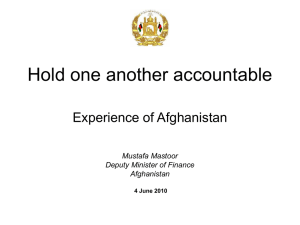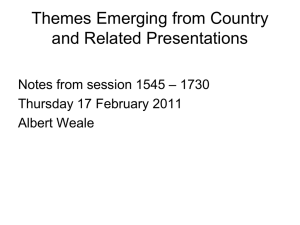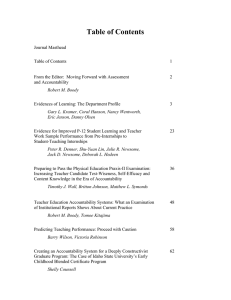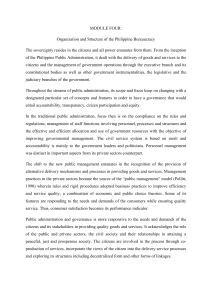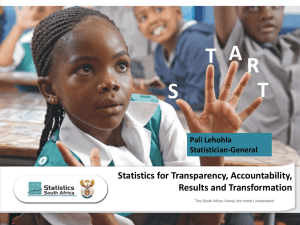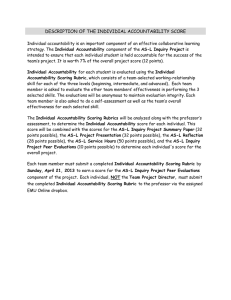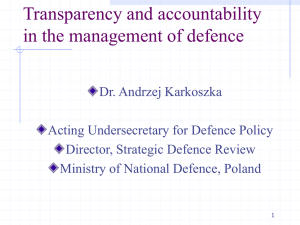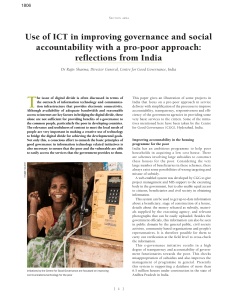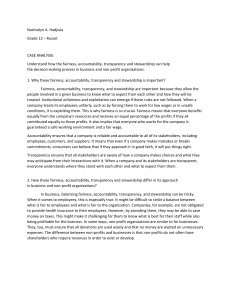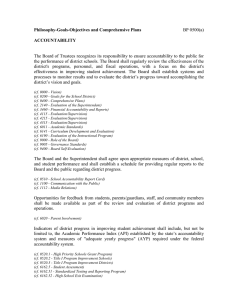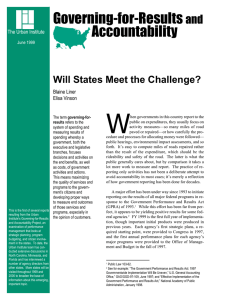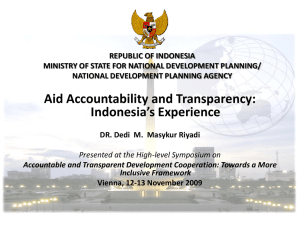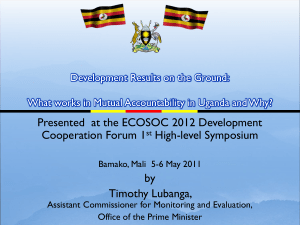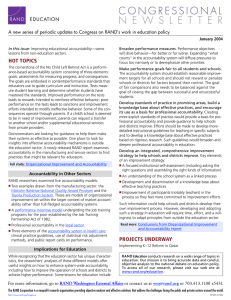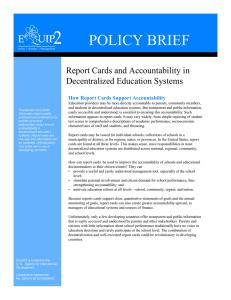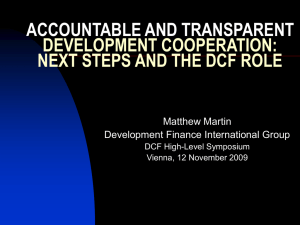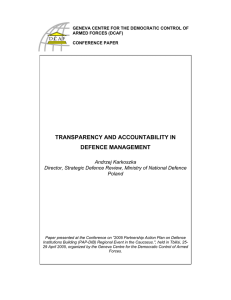Practical PSI Challenges in an Open Data World
advertisement
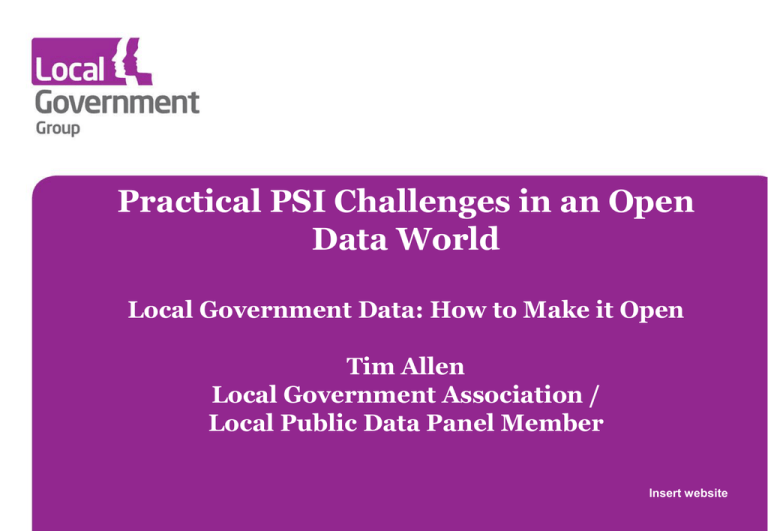
Practical PSI Challenges in an Open Data World Local Government Data: How to Make it Open Tim Allen Local Government Association / Local Public Data Panel Member Insert website 1. One Immediate Task For Local Government Meet commitment to: • January publication of: – £500+ spend data – Senior salaries – Contracts over £500 • Initially, injunction don’t let best be enemy of the good but with a shift in emphasis to machine readable format (ref. Government Transparency guidelines / Local Public Data guidelines) • Underscored by Government Public Data Principles 2. One Immediate Task For Local Government Is this difficult: • Practicalities vary depending on systems, but achievable • Issues around: – – – – • • Secure personal data and certain types of confidential data; Fraud protection: conflicting views and still to be resolved Pragmatic details sorted re salaries and related data Beginning to help others make sense of the information e.g. potential for using CIPFA categories for spend data. Open Government Licence or similar adopted, but need to make clear any copyright concerns. Practitioner help available from Local Government Group: http://lgtransparency.readandcomment.com • Also a Local Open Data community of practice 3. So is this the end of that story? Expect: • ‘Code of Recommended Practice’ under Section 2(11) of the Local Government, Land and Planning Act 1980 ref publication of information by local authorities about the discharge of their functions and other matters. • A legislative basis to the local transparency agenda supplement Freedom of Information and Environmental Information Regulations. 4. Where is this headed? Underlying this: • A different form of accountability: less top down and target driven • More about direct accountability to citizens; • Arm chair auditors as catalysts; • Driven initially by concern to reduce spend and encourage challenge through scrutiny and question, but there is more 5. Is this the end of the story? • Scope for developing the accountability agenda: opening up performance; • Big Society: changing balance between state / citizen; • Creating affordable services – starts with transaction costs but moves to radical change in the way (and what) public services deliver; • Unlocking creativity: people doing it for themselves; • Sweating the asset that is public sector data; • Towards participatory as well as elective democracy; • Behind this: a changing approach to data including the linked data concept which we are exploring. 6. But some challenges in doing this… • Shifting mindsets and culture away from accepted notions of statistics, whilst recognising the role of, for example, both – Data standards, e.g. for comparability purposes; yet – Creating space for ‘mashups’ and experimentation • Generating the market for ‘apps’ – but not just an developer activity: this should inform public service behaviour, e.g. in real time provision for service information and citizen engagement / feedback; • Signs of this, not least in the light of the financial situation, for example: 7. Conclusions • An unfolding story – where next – linked data? • Must make this work for citizens: a role for ‘laissez faire’, but a role too for the public sector; • A driver for innovation in public services: accountability of course, but potential for more besides. • The Martha Lane-Fox point about digital being a 21st century element to literacy: we mustn’t forget the 10% but find ways to draw them in.

